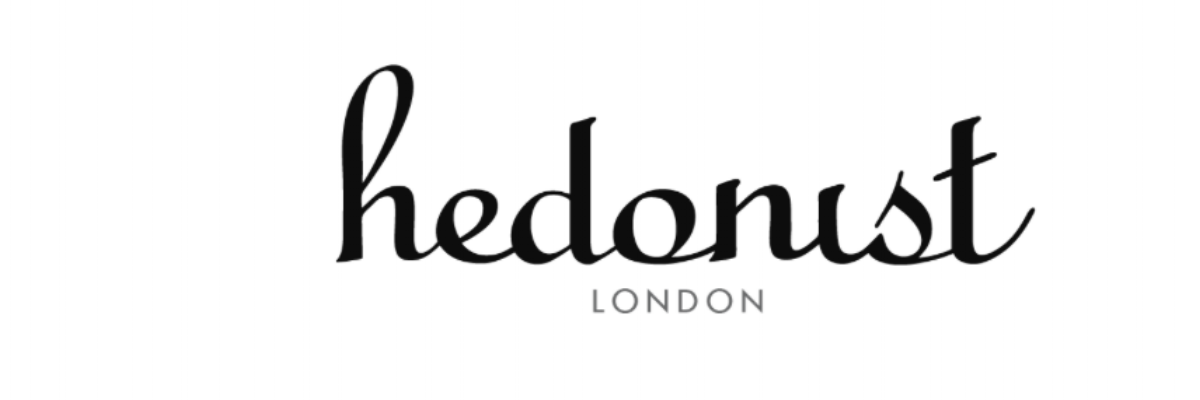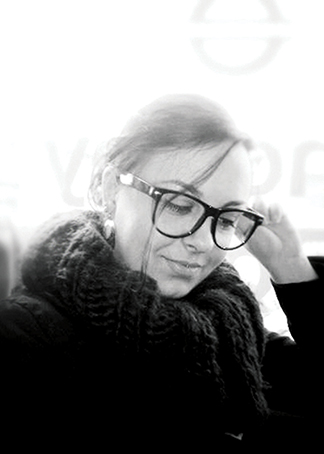aliens
Immigration has been one of the most popular topics in current affairs. There are figures, statistics and endless streams of debates on the topic. Here, we leave behind all of that and present stories. Lives of people, whose ways and origins are different, with only one commonality - there are all aliens.
‘Nationality’
An Anthropologist’s view
In many ways imagining you have a nationality is a rather bizarre thing to do. The idea of a ‘nationality’ is one of those structural abstractions that probably only exists because of the human mind’s insistence on categorising and labelling the world into chunks of difference. Having a nationality does this by establishing how people are different, not how they are the same. In other words: I am I, therefore you are not I – therefore we are different.
However, despite the human propensity to create a world full of ‘them and us’, the fact is that the specific idea of being connected to a nation is a relatively new thing in human history. For example, only about 250 years ago the inhabitants of rural Spain, France or India, would not have aligned themselves with the Spanish, French or Indian administrations. They would, instead, have rooted themselves into the traditional methods of the location they found themselves in paying little attention to, or even knowledge of, a wider authority’s ideas and laws. In short, creating difference is as old as the hills, but nations, and the idea of having a nationality, is a new thing.
According to social thinker Gellner, state provided education is the driver of the nation. The rationale: to create allegiance from early on, belonging - potent stuff that taps into all social animals’ sense of security, not least because ostracism from ‘the group’ is experienced psychologically as life threatening. So what then of those people who move from one location to another on the planet? What happens to their sense of belonging? Having fostered a sense of allegiance to a flag how can people move without engendering discomfort, not only in themselves but also in the group they are moving in to?
Creating difference is as old as the hills, but nations, and the idea of having a nationality, is a new thing
I was born in Ndola, Zambia. My mother is German, my father Lebanese. I am British because I have a British passport. My parents divorced when I was 3. They both remarried and began to create new families. They both set up homes in different countries prompting a decision to send both my sister and myself to boarding school in England. Moving to be schooled in Britain dramatically altered life, but as I was only eight years old I wasn’t aware that I was migrating – I was simply living the life my parents had created for me.
Interestingly, despite calling myself British, I have always felt ‘a bit different’. I think this sense of difference is in part connected to not having a place called home. I have felt proud of being a mixture of different bloods, seeing this like being a sparky mongrel, as a strength and a place creativity, but, if I am honest, have also always felt relieved that I can say I have a British passport.
I wonder if I hadn’t had the security of that would I have felt so proud of being a bit different.
Among strangers?..
When you are 18 you believe are indestructible. Leaving home isn’t something that you fear, but something that excites. Being a girl from Moldova, people are always warning you about the ‘hard life in the big city’, stories about human cruelty are a dime a dozen. But you’re 18. You don’t care.
So with a sense of adventure, I packed my bags, moved to Moscow, and started my life as a student at its biggest university. People warned me about the ruthlessness of Moscow, the hardships endured by people with no money or connections, but I was adamant to live life in the big smoke.
What followed were some of the happiest days of my life. Between meeting new people and studying, my life was a constant flurry of activity, and I loved it. During my stint at university, I developed a political curiosity, which grew into full-blown activism – a reaction to the government’s impingement on civil rights. By my fourth year at university, my political activity started to turn heads and I was head hunted by one of the largest non- profit organisations in Moscow. In my mind, this was great; I was 21 with a full-time job. Naïve, I know.
I was declared a ‘threat to national security’ and banned from Russia for a minimum of 5 years
But I continued to wear my rose-tinted glasses. I delved deeper into my political career, crossing the path into journalism, where my final job in Moscow was as a political reporter for “The New Times”, a paper that was considered to be part of the ‘free media’. However, it was by this stage, that I knew I was being watched. I started to get ‘hints’ which in any other country would be considered threats. It got to the point where I had to keep getting new phones, and disabling old ones, as I knew my phones were constantly monitored. But I persevered.
The day my life changed was after “The New Times” published my article about the illegally rigged elections. I was in a conference in Georgia, and on my return I was denied entry. I was given two options stay in Georgia or go back to Moldova.
I declined both options and sat on an airport bench for days, stuck between two countries, being constantly questioned and interrogated. My situation went public thanks to my fellow journalists, but unfortunately this only set fuel to the fire, and at the age of 23, I was declared a ‘threat to national security’ and banned from Russia for a minimum of 5 years.
So, this country where I was dreaming to live and work, where I got my new family - my close friends, everything, had shut that doors.
So I went back to Moldova, where I still am. People tell me I am lucky to be able to have a home, and know this to be true, I could be calling prison home. However, I spent my first year living in a deep, dark depression. I felt lost. But life goes on and I have started afresh. I have my own political TV show, and I still lead the life of a political activist—trying to change the country but this time it’s my country to change.
I'm here to take your job, BUT YOU DON'T HAVE ONE
Plenty has been written and said about immigration. Different points of view, hundreds of sob stories, thousands of good reasons, millions of opportunities, but all I have to say is that being an outsider has given me experiences like no other.
First of all, let me just start by saying that my story of immigration is a little bit different. I wasn’t born in an impoverished little village in Bangladesh or a war torn African state. If you had, you might have a different outlook on life and a different set of motivations. My origins do not stem from poverty, I never had to struggle for a job in my homeland, begging the question on most people’s lips, why leave?
I met Annie Lennox the first week I arrived. We had a quick chat; I told her I was one of her biggest fans. Can you believe I actually had the opportunity to lie to Annie Lennox!
I fell in love. Packed up and followed my love to ‘the land of the free’. I thought by leaving my homeland for love and starting afresh without the restraints from my past I would find something better, what exactly, I’m not sure, I’ll tell you once I find it. But right now, what I do have is my experience, stories and I hate to say it but a shit load of street smarts.
I learned, felt, tried and experienced things I had never and would never have done back ‘home’. I travelled through eight states in less than twenty hours, ate deer jerky, tried my hand at being ghetto, danced with my first black guy (something I can’t do back in my country), got hired, fired, helped a neighbor steal from Walmart, ate the most amazing Tex-Mex grilled cheese sandwich, made friends, made enemies and even some frenemies, got engaged, had sex in a tee-pee, got married, bought a sex swing (which I didn’t fit in to), saw Buzz Aldrin, and was homeless. The list continues but the point being – from the first steps taken as an ‘immigrant’ all five senses were given a dose of the magic that is America. And surprisingly, it was an easy transition. I loved every minute of life in the new lane and was high on adrenaline for most of it.
The first few years I met fascinating people, achieved the near impossible in my personal life, developed a deep love for the region and was lucky enough to have and be held in so many people’s hearts. However, even though my American chapter ended four years ago, the adventure changed me beyond recognition – in my own eyes of course, others just think I got a little bit more annoying.
I have since hotfooted it to London. I am classified as a level 85 immigrant and can survive on pretty much no income (so basically a true Londoner). I know everything about being cheap; shop clearance dates, discounts and much more. I found a job as a booker/pimp, that has turned into a career, a job I would NEVER have considered if I was back home. I also mind the gap. Living in UK has taught me how to use public transport with confidence even when half-drunk or half-asleep. I’ve learnt that it’s not really okay if you’re an Eastern European citizen, no matter what.
I have made new friends. Touched a dinosaur bone (don’t tell the National History Museum). I have a pet teenage fox that eats my Nando’s leftovers and lives in my garden. I share a house with four men from all over the world. They cook their traditional dishes for me—think Uzbekistan vodka and Algerian Samosa and that is my kinda dinner. I met Annie Lennox the first week I arrived. We had a quick chat; I told her I was one of her biggest fans. Can you believe I actually had the opportunity to lie to Annie Lennox! And I stalked Lenny Kravitz (a story for another time, perhaps).
I feel free as a bird and I thank ol’ Blighty for that. I feel like I have almost reached the point of being a ‘ free bird’, with no moral cages. Learning you can hit rock bottom helps you learn that you can shoot up to the sky. I had ten or so different jobs in the first 15 months of getting to London from working as a host for luxurious penthouses to being hired as a busty secretary for an insane man. I have suited it in an office (HR coordinator for a charity organization) to scrubbing floors as a cleaner for a Nude SPA center—random jobs, yes, but that is how I roll, and I love it. I live the hard life of an immigrant but it’s my life, my choice, and my freedom.
Next stop maybe Uganda.




